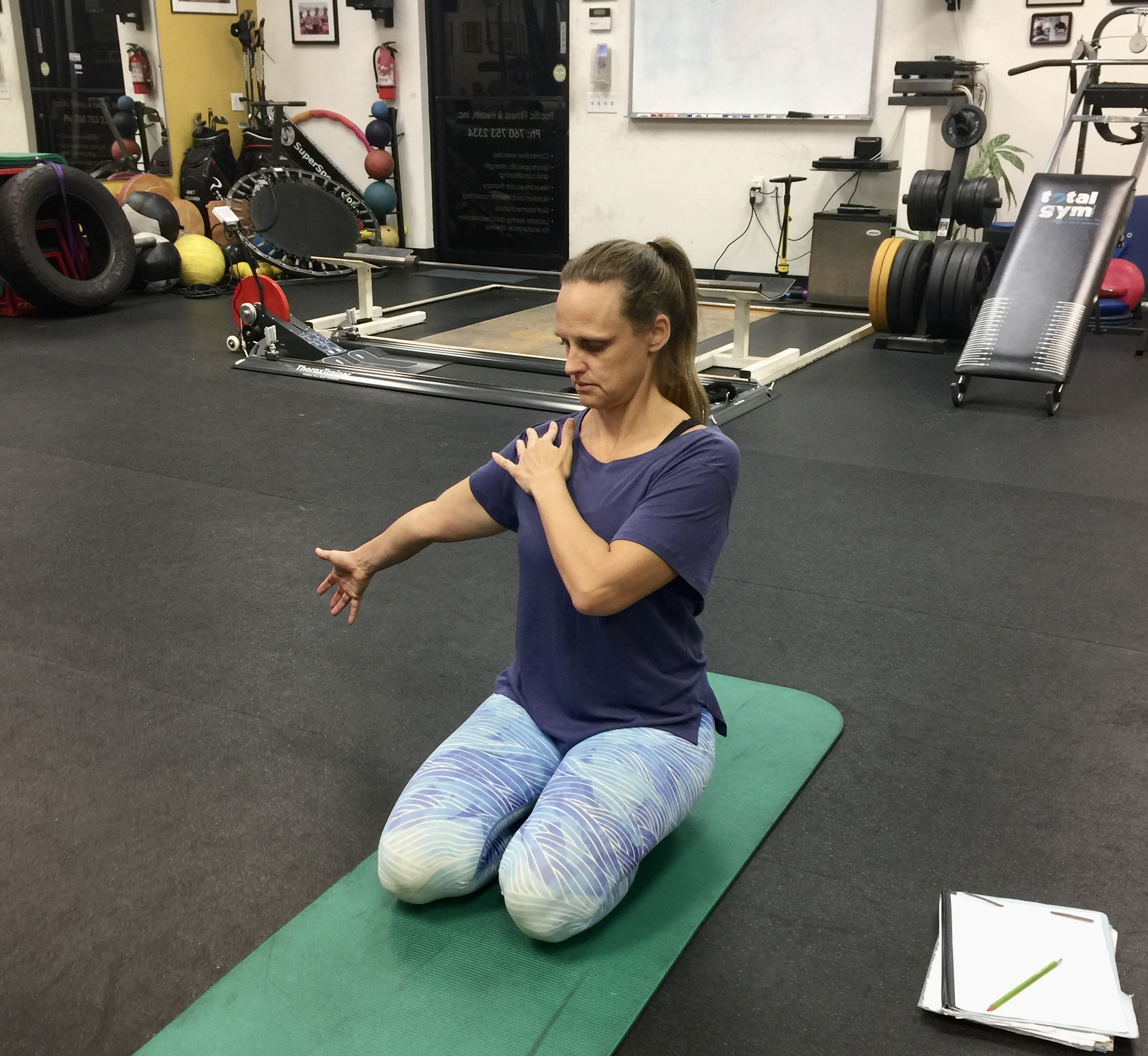I fell off my bike a few months ago and sprained my sterno-clavicular joint (where the collar bone meets the sternum).
It’s not a joint anyone ever thinks about, and it really messed up paddling for me.
I’ve had a lot of injuries and I’ve learned a lot about recovering both physically and mentally. It’s a practice and I get better at the healing journey every time.
Seven things I have learned about healing from injury:
Take a Break.
Stop. Immediately. Don’t say “it’s not that bad” and keep going.
I’ve done that, because I didn’t want to miss training, and made it worse.
We don’t lose fitness in a few days. In fact, we can do no training for about 12 days before starting to decline.
Whether it’s an accident or an overuse injury, it’s better to take a break and figure out what’s going on than to continue and make it worse.
Assess and Reassess.
Practitioners specialize in an area, they don’t specialize in you; trust your instinct and get more than one opinion.
The orthopedic surgeon did not see my body as a whole, looked at the images of the SC joint, and assessed whether or not I needed an operation and determined how long it would take to heal.
The osteopath took my entire shoulder into account and saw a deeper underlying issue. It was not only the fall off my bike that contributed to the sprain but also an imbalance in my shoulder that made it vulnerable.
Patience.
Healing takes time and different types of injuries require different healing.
I’ve had overuse injuries that go on for years because I needed to undo the pattern that created it as well as heal the damaged tissue.
I dislocated my shoulder in a single accident that was relatively quick to overcome since it was an isolated tear.
Stress Doesn’t Help.
Our bodies can not be under chronic stress and put resources towards healing, especially if we have more than one injury and many stressors in our life.
Reducing stress to allow more resources to go towards repair makes a difference in how long it takes to heal.
Don’t Catastrophize.
It’s soooo easy to slide into “I can’t do what I want so I wont do anything” mode.
I’ve been in that place a few times and always need this reminder:-
Maintenance requires surprisingly little activity, so do what you can.
Even though I’m doing way less, and I will lose some of my fitness, I can maintain a surprising amount doing something rather than nothing.
Grieve.
It’s uncomfortable but I believe it is necessary. Paddling is what we love to do, not being able to do it is a loss and feels terrible. Give those emotions time and space to run their course.
And now?
It’s been four months. I still would have liked to race and paddled OC1 this season, but I’m at peace with the return-to-fitness journey I am on.
I know my shoulders will be stronger for paddling with all the knowledge from physical therapy I am gaining, and I will be applying it in my paddle coaching work.
Instead of pushing my grief aside, I leaned into it, and allowed the sadness and loss to remind me how much paddling means to me.
My future self is reminding me “Let the sadness run through you, you have to surf this wave too!”

